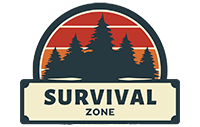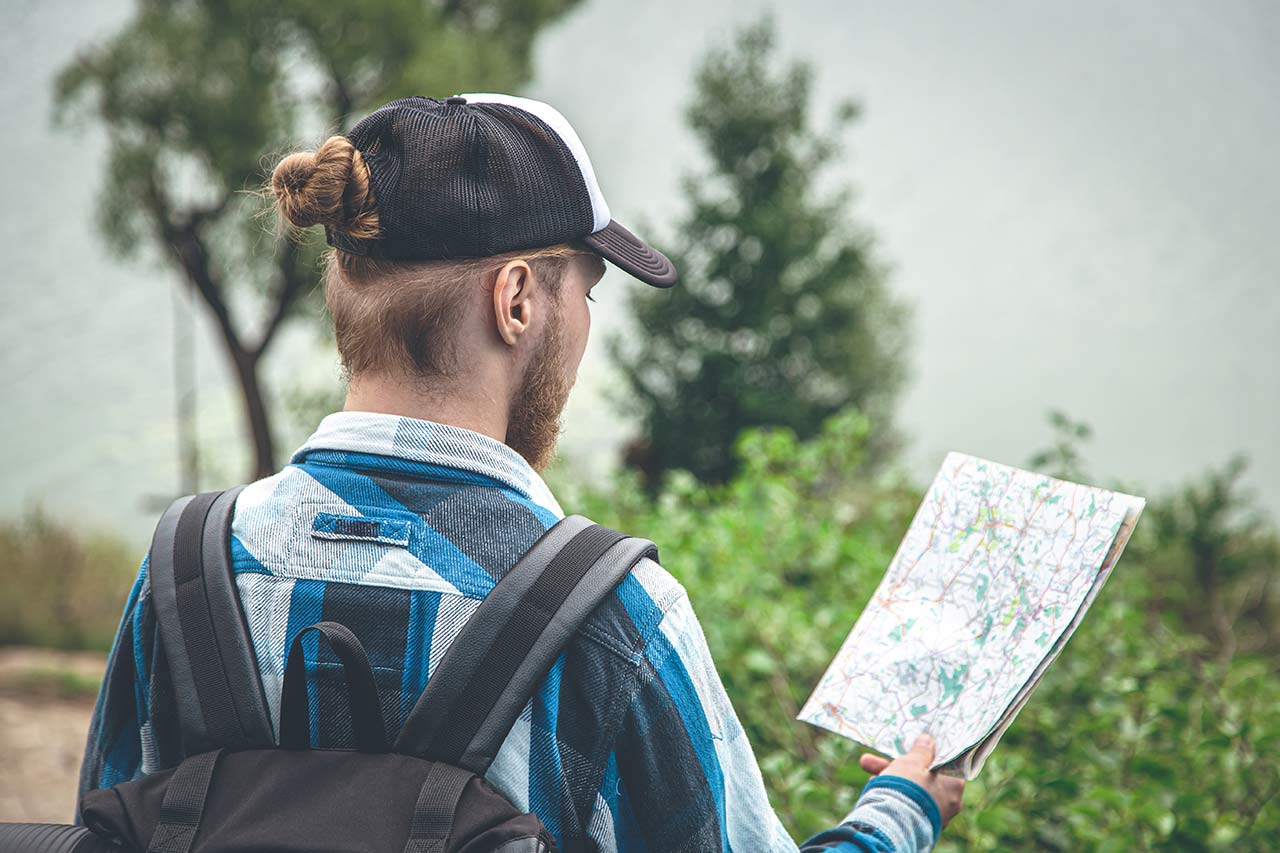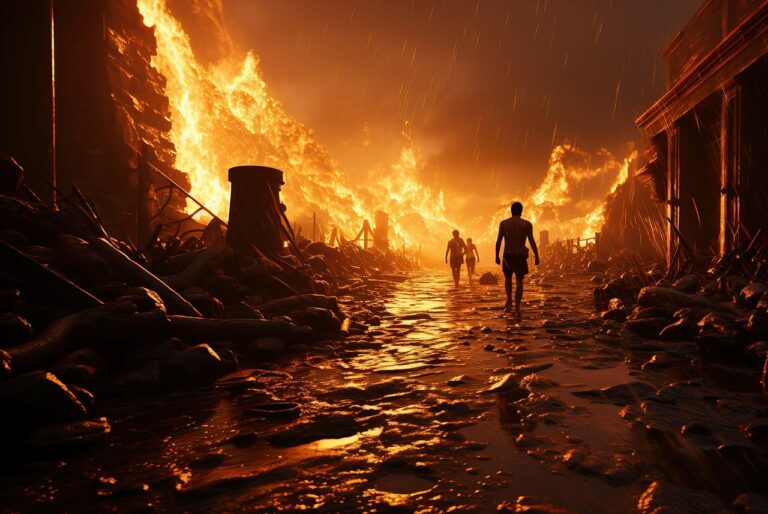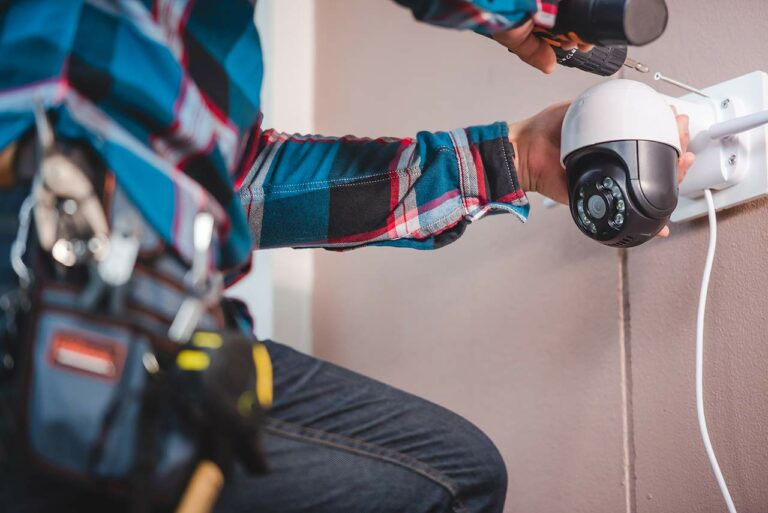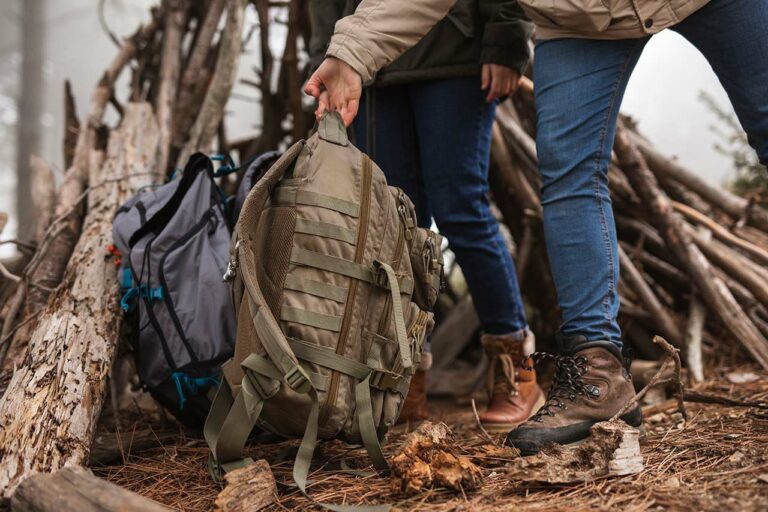Best States For Preppers: Top Locations For Survivalists In 2023
As a prepper, you know the importance of choosing the right state for your survival needs. With various factors to consider, such as population density, natural resources, and local laws, it’s essential to find a location that suits your specific requirements for the life you want to live if disaster strikes.
Let’s talk about some of the best states for preppers, focusing on the aspects that make them ideal for disaster preparedness and long-term survival.
From the vast landscapes of Texas to the rugged wilderness of Alaska, many states across the U.S. cater to the prepper community’s diverse needs. Whether you prioritize self-sustainability, off-grid living, or privacy, there’s a state that aligns with your values. It’s just a matter of finding it and getting there.
Best Prepper States
Weighing factors like natural resources, climate, and legislation, here are some of the best states in the U.S. for preppers:
- Alabama
- Alaska
- Colorado
- Idaho
- Maine
- Minnesota
- Missouri
- Montana
- North Carolina
- North Dakota
- Ohio
- Oregon
- Tennessee
- Texas
Alabama
Alabama offers a warm climate and fertile soil, making it conducive for growing crops year-round. Its rural areas provide privacy for preppers, and there’s an abundance of freshwater sources for sustenance and agriculture.
Alaska
With its vast expanses of wilderness, Alaska is perfect for those preppers who want complete solitude. The state boasts abundant natural resources, including timber, water, and wildlife. Low population density and permissive gun laws ensure privacy and self-reliance.
Colorado
Colorado provides a varied terrain with both mountainous and flat areas. Its diverse ecosystems can be beneficial for preppers, offering different resources and options for homesteading.
Idaho
Idaho offers vast wilderness spaces, low population density, and gun-friendly laws. The climate is conducive for crop cultivation, and the state offers ample opportunities for hunting, fishing, and raising livestock.
Maine
Maine has a colder climate but offers rich soil for cultivation and an abundance of freshwater sources. Its coastal areas provide opportunities for fishing, and the dense forests can be a good resource for timber and hunting.
Minnesota
Known for its lakes and forests, Minnesota offers ample fishing and hunting opportunities. The cold climate may pose challenges but also offers benefits like fewer pests and longer food preservation times.
Missouri
Missouri boasts an affordable cost of living and fertile land, ideal for farming. Its central location in the U.S. is strategic for trade and networking with other preppers.
Montana
Montana stands out with its low population density, favorable gun laws, and expansive wilderness. Rich in natural resources like timber and water, it’s an excellent choice for those aiming for an off-grid lifestyle.
North Carolina
North Carolina offers fertile soil, abundant water sources, and a mild climate. It’s conducive for growing crops and livestock. The state also has a strong community of preppers, ensuring a supportive environment for newcomers.
North Dakota
While having a harsher climate, North Dakota provides vast lands suitable for farming and livestock. The state practices fewer regulations, promoting increased self-reliance and off-grid opportunities.
Ohio
Ohio’s varied climate and terrain offer a mix of opportunities for preppers. Its fertile lands are suitable for various crops, and there’s a strong sense of community in its rural areas.
Oregon
Oregon provides a diverse terrain with plenty of forested regions. While it’s more populated, its varied landscapes offer numerous locations for survival retreats. The state’s western region is particularly abundant in natural resources.
Tennessee
Tennessee offers a mild climate, allowing for year-round gardening. Rich in hunting and fishing opportunities, the state also has low property taxes and is gun-friendly.
Texas
The vastness of Texas provides diverse options for preppers—from its desert regions to its fertile plains. Texas boasts a mix of climates, abundant natural resources, and a strong culture of self-reliance.
What Most Preppers Look for in a State
Survival and Disaster Preparedness
When evaluating a state for your prepping plans, survival and disaster preparedness are some of the key factors you’ll likely want to consider. You want a location with limited probability of natural disasters like earthquakes, hurricanes, or floods. States like Idaho, Montana, and Texas are known to have fewer major weather risks than other states, which is why they often rank high on preppers’ preferred states.
Natural Resources and Climate
Natural resources and climate play a big role in your everyday survival. You need a state with ample rainfall, fertile soil, and strong sources of fresh water for growing crops and sustaining livestock. Some states, such as Alaska and Idaho, benefit from a rich resource base and a climate that supports a variety of plant life. (Of course, winters in both states can be tough.)
Another important factor is terrain. Varying landscapes like forests, mountains, and plains provide a good mix of natural resources and hiding spots.
Population and Crime Rates
When it comes to prepping for potential calamitous events, such as attacks on power grids, war, and pandemics, low population areas are generally preferred, as they provide a lower probability of conflict during these crises. States like Wyoming, Vermont, and North Dakota have low population densities, which make them attractive for those who want to get away from the rest of the populace.
Just keep in mind, low population density doesn’t always guarantee a low crime rate. Research local statistics so you know what you’re getting into with any municipality.
Cost of Living and Taxes
While maybe not the most important factor, another factor to consider in choosing a state for your prepping needs is the finances, namely cost of living and taxes. Although there may be no perfect or all-inclusive state for preppers, some states offer a better balance between valuable resources and tax burdens than others. North Carolina and Tennessee, for instance, have relatively low costs of living compared to some other states with similar resources.
When evaluating taxes, don’t forget to consider the property tax which can be significant if you’re looking at a large piece of land for your prepping plans. Texas, while providing a great culture for preppers, has high taxes on property in some areas, so weigh the balance between the positives and negatives when deciding on your location.
Climate Factors
Seasonal Changes
States with distinct seasons can offer some advantages, such as a natural growing season and a variety of weather conditions to test your skills and adaptability. States like Idaho, Montana, and Colorado experience significant snowfall during winter, which can be both a challenge and an opportunity for learning essential cold-weather survival skills.
Handling Extreme Weather
Being able to handle extreme weather conditions is crucial for any prepper. States with extreme cold or hot temperatures will require you to be well-equipped and knowledgeable about appropriate survival tactics. In colder states, you’ll need to learn how to maintain body heat, build shelters, and use the snow to your advantage. In notoriously hot states, like Texas and Arizona, you’ll be forced to develop strategies for staying cool and sourcing water in the arid landscape.
Natural Disaster Risks
It’s essential to factor in natural disaster risks when choosing the best state for prepping. While no state is immune to disasters, some are more prone to specific types of events. States like Florida, Louisiana, and North Carolina face risks of hurricanes and flooding. While this doesn’t preclude them as good states for prepping, you should be well-prepared for such events by understanding local evacuation routes, building flood-resistant shelters, and stockpiling separate emergency supplies for weather events.
Government Regulations
Government regulations in certain states may impact your ability to prepare and survive disasters. These regulations can vary significantly from state to state, and include things like gun laws, property taxes, and other regulations that can derail your prepping plans.
Gun Laws
Gun laws can play a huge role in your ability to defend yourself and your family during a crisis situation. States with less restrictive gun laws like Texas, Idaho, and Tennessee make it easier for you to own, carry, and use firearms for self-defense or hunting purposes.
States like California with stricter gun laws may not be as conducive to prepping lifestyles.
Property Taxes
Owning land and a homestead is a key part of prepping, so you should look for states with lower property taxes and affordable land prices. States like Tennessee and Idaho offer lower property taxes and affordable lands that make it easier to establish a homestead, even one of considerable size, without breaking the bank.
Government Regulations
Prepping involves a lot of different aspects, including raising your own food, alternative power sources, and self-defense. Research state regulations concerning farming, raising livestock, off-grid living, and emergency preparedness. Some states have more relaxed regulations surrounding these activities, while other impose more restrictions.
Bottom Preferred States for Prepping
California
California poses several challenges for preppers. Strict gun laws can hinder proper arming, while natural disasters such as earthquakes, forest fires, and tsunamis are frequent. High population density can also be problematic in a crisis.
Florida
Florida’s frequent hurricanes and high humidity can complicate food storage and make for an uncomfortable living environment. Certain areas face high crime rates, posing potential safety risks.
New York
New York may not be ideal for preppers due to its high population density, strict gun regulations, and vulnerability to natural disasters like hurricanes and blizzards. The high cost of living can also pose challenges in acquiring suitable prepping property.
Ohio
While Ohio is a recommended state for preppers, it does come with some drawbacks. Extreme weather conditions, including tornadoes and snowstorms, can be hazardous. Economic fluctuations in some regions of the state can also impact the ability to find steady employment and sustain a desirable quality of life.
Frequently Asked Questions
What are the top states with favorable conditions for preppers?
- Alabama
- Alaska
- Colorado
- Idaho
- Maine
- Minnesota
- Missouri
- Montana
- North Carolina
- North Dakota
- Oregon
- Tennessee
- Texas
These states generally offer low population densities, a culture of self-reliance, and ample natural resources, which are ideal for prepping.
Which states offer the best natural resources for survival?
States like Idaho, Montana, Alaska, and Maine boast abundant natural resources for survival. These states offer plenty of water sources, fertile soil for farming, ample game for hunting, and vast forests for wood and other resources
Where can you find the most secluded bug out locations in the US?
The most secluded bug out locations in the United States can be found in states with low population densities, such as Alaska, Montana, Idaho, Wyoming, and the Dakotas. These states offer vast tracts of uninhabited land, providing privacy and isolation from potential threats or disaster scenarios.
Which states have the most likeminded prepper communities?
States like Tennessee, Idaho, Montana, and North Carolina are known for their prepper-friendly communities, where you’ll find likeminded individuals who share your beliefs and values. These communities foster a culture of self-reliance and mutual support, making them ideal places to establish your prepping homestead.
What states have the least restrictive laws for prepping?
States like Texas, Arizona, Alaska, and Idaho have some of the least restrictive laws regarding prepping, especially when it comes to firearms and other self-defense measures. These states generally respect the rights of individuals to protect themselves and their property, which can be crucial for preppers aiming to maintain their security and independence in a crisis.
Which states are best suited for off-grid living?
Off-grid living is most feasible in states with abundant natural resources and suitable climates, such as Tennessee, Oregon, Idaho, and Colorado. These states offer a wide range of options for generating your own power, whether through solar, wind, or hydroelectric systems. Additionally, their climates and ecosystems make it easier to grow food and collect water, allowing you to live self-sufficiently without relying heavily on outside resources.
